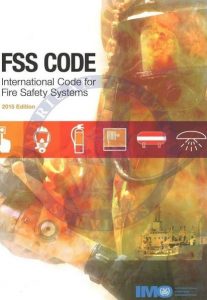The 103rd session of the IMO Maritime Safety Committee (MSC 103) was held from 5 to 14 May 2021 by video conference, due to the pandemic of COVID-19. The key subjects are the following:
-Adoption of various amendments related to International Convention for the Safety of Life at Sea (SOLAS), International Convention on Standards of Training, Certification and Watchkeeping for Seafarers (STCW), International Code for Fire Safety Systems (FSS Code) and the International Code on the Enhanced Programme of Inspections during Surveys of Bulk Carriers and Oil Tankers 2011 (ESP Code)
– Adoption of a resolution on ‘Recommended action to prioritize COVID-19 vaccination of seafarers’. Also is recommended to  consider exempting seafarers from any national policy requiring proof of COVID-19 vaccination as a condition for entry, taking into account that seafarers should be designated as ‘key workers’
consider exempting seafarers from any national policy requiring proof of COVID-19 vaccination as a condition for entry, taking into account that seafarers should be designated as ‘key workers’
– Completion of the regulatory scoping exercise (RSE) for the use of Maritime Autonomous Surface Ships (MASS) and approved a circular providing the outcome (MSC.1/Circ.1640)
– Development of further measures to enhance the safety of ships relating to the use of oil fuel. More specific, progress was made in developing relevant mandatory SOLAS requirements related to reporting of cases where fuel suppliers do not meet SOLAS requirements and related action against such fuel suppliers
Additional, progress was made in developing regulations for the documentation of the flashpoint of the actual fuel batch when bunkering.  The MSC re-established a correspondence group to look at a number of safety issues related to oil fuel and endorsed an updated work plan
The MSC re-established a correspondence group to look at a number of safety issues related to oil fuel and endorsed an updated work plan
– Measures to enhance maritime security through various projects, modules and other actions such as: a new four-year EU funded project on ‘Port Security and Safety of Navigation in Eastern and Southern Africa and the Indian Ocean’, GISIS module on maritime security, International Maritime Security Trust (IMST) Fund, Guidelines on Cyber Security On-board Ships
– Measures on prevention of piracy and armed robbery against ships, such as the adoption of a resolution on recommended action to address piracy and armed robbery in the Gulf of Guinea
– Approved the basic structure of framework Model Regulations on Domestic Ferry Safety. The draft model regulations are intended to provide framework provisions on domestic ferry safety that can be incorporated into national law. The Committee agreed to establish a Working Group on Domestic Ferry Safety at MSC 104 to further develop the model regulations and invited Member States and interested parties to make suggestions on amendments to the model regulations to MSC 104. Additional, a list of observed and potential gaps in domestic ferry safety was endorsed. Other matters, declarations and guidelines related to Ferry Safety are approved/adopted
– Proposal to address the problem of containers lost at sea, such as the establishment of a compulsory mechanism to declare loss of containers at sea and identify number of losses, in order to reduce safety and environmental consequences of container losses. The MSC agreed to include a new output (for 2022-2023) on ‘Development of measures regarding the detection and mandatory reporting of containers lost at sea that may enhance the positioning, tracking and recovery of such containers’ 
-A new agenda will be prepared subject to “Development of amendments to SOLAS chapter II-2 and the FSS Code concerning detection and control of fires in cargo holds and on the cargo deck of containerships, with a target completion year of 2025
-Approvals/adoptions of other matters, guidance and guidelines
Source: www.imo.org
Contact us to receive a professional advisory in your area of interest
